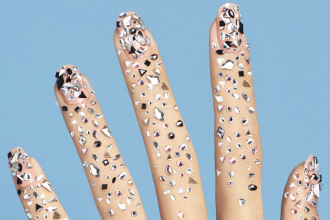Mother nature has given us many gifts over the years, and one of those is certainly jojoba oil. Favoured by people all over the world for its moisturising, hydrating and restorative properties, jojoba truly is nature’s moisturiser. Best of all, it’s safe for practically all skin types, so let’s find out more about protecting your skin with jojoba oil moisturiser and other products.
Popular uses for jojoba oil
You can find jojoba oil in a whole bunch of products across the skincare and haircare markets. Traditionally, it was used by Native Americans to treat conditions like acne, dry skin, and more. But today, people all over the world have discovered the benefits of jojoba oil. Here are just a few of the popular ways jojoba oil is used in the modern world.
- Facial cleansers
- Skincare serums
- Toning mist
- Skin moisturisers
- Shampoo and conditioner
- Lip balm
- Facial masks
- Plus, many more
While jojoba oil can’t reverse the aging process, it has been found to hydrate, moisturise and aid in the repair of inflamed, dry and itchy skin. Its vitamins also help to improve skin elasticity, making it a popular choice for combating fine lines and wrinkles.
However, aside from skincare and beauty products, jojoba oil is also popular for treating certain skin conditions. We’ll go into more detail on those below.
Jojoba oil for oily skin
Many skincare products are unsuitable for people with oily skin. This is because an over-production of skin sebum often causes oily skin. The root cause of this over-production, though, is actually a lack of moisture. Because jojoba oil is gentle on your skin, you can use it as a moisturiser. Even better, because it mimics the properties of our own skin sebum, it can hydrate and moisturise without the need to strip away other natural oils. As your body produces less sebum, your skin becomes less oily over time.
Jojoba oil for dry skin
Dry skin can become easily irritated, itchy and begin to flake. Jojoba oil combats this by moisturising the skin. Because it resembles sebum, it can be absorbed easily into the skin without leaving an oily layer. If you experience dry, flaky skin, jojoba oil can help remove the flakes and begin replenishing your epidermis.
Treatment of eczema and psoriasis
Eczema and psoriasis are skin conditions usually caused by over-active immune systems. A person’s skin becomes dry, itchy, red and inflamed. Using natural cleansers and moisturisers removes the damaged layer of skin and allows a healthier layer to grow in its place. Jojoba oil also has anti-inflammatory properties, providing comfort and reducing the temptation to scratch at dry areas.
Using jojoba oil for acne
Acne can often be caused by oily skin or clogged pores. Jojoba oil acts as a natural hydration method, moisturising and nourishing the skin. When you put it on your skin, the brain sends a signal that no more sebum is required, because jojoba oil mimics sebum so closely. Essentially, it tricks the body into producing less oil, therefore keeping your pores clean and potentially preventing acne.
Is jojoba oil right for your skin?
As with any health or skincare product, it’s worth checking with your doctor if you have any concerns. However, high-quality, all-natural jojoba products from reputable retailers are usually quite safe. In fact, the key properties of jojoba oil make it a great option for certain skin conditions.
If you’d like to try jojoba oil but are a little wary about the side effects, it’s best to try a small amount first. And ensure that it’s organic, cold-pressed and natural. Processed products are more likely to cause a rash or allergic reaction for some people.
If you use jojoba oil as instructed, you can safely enjoy its benefits daily.














